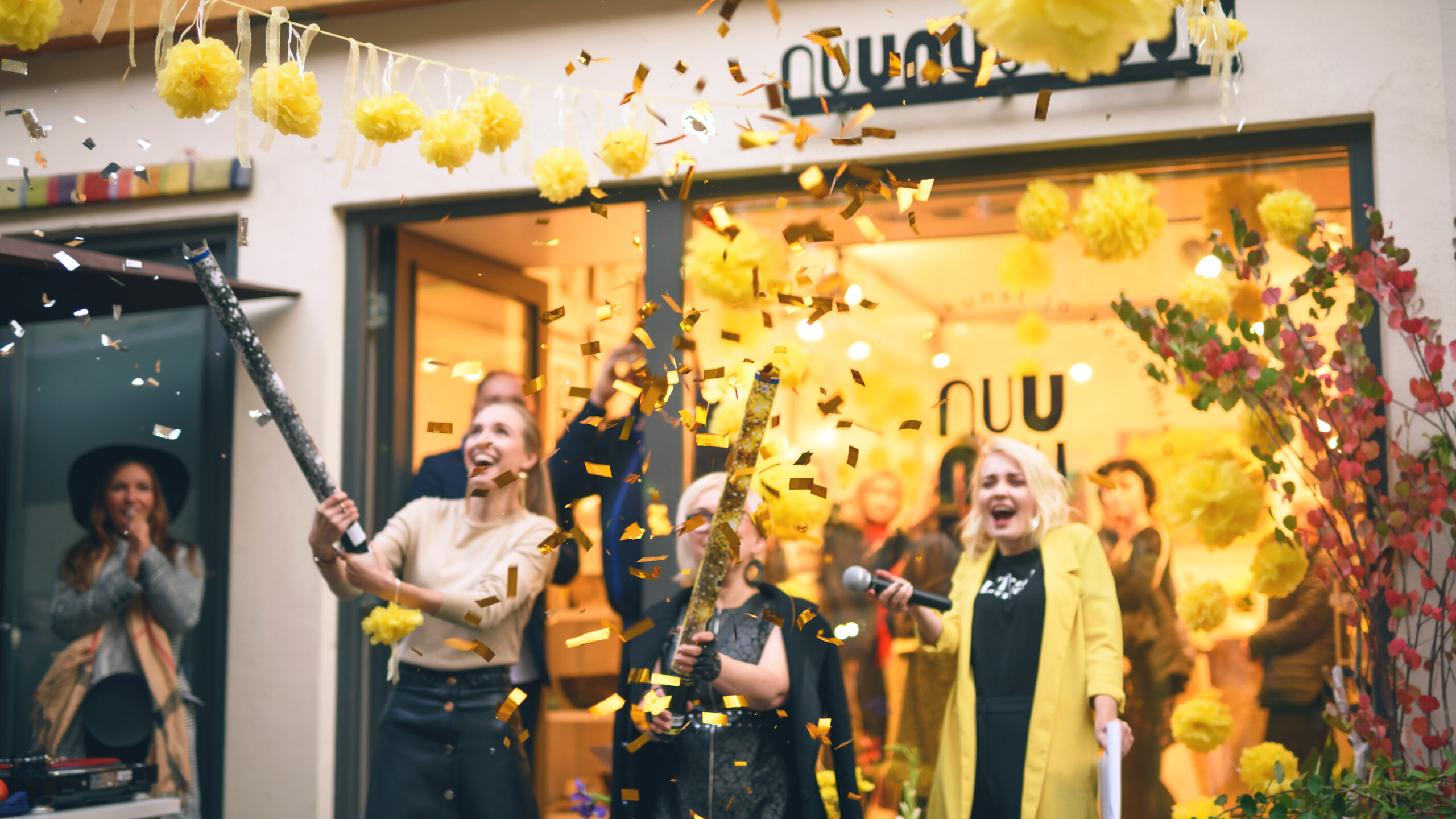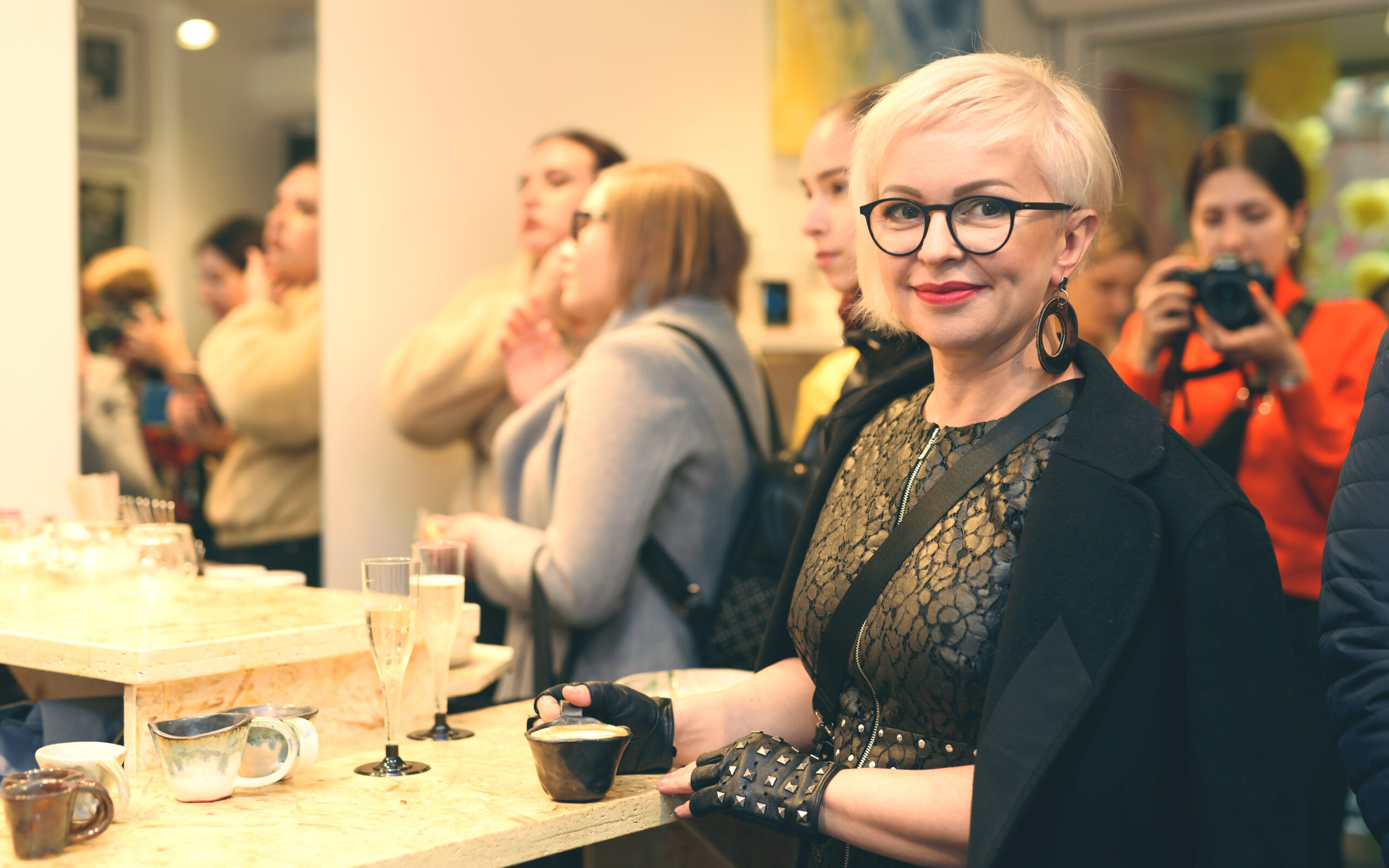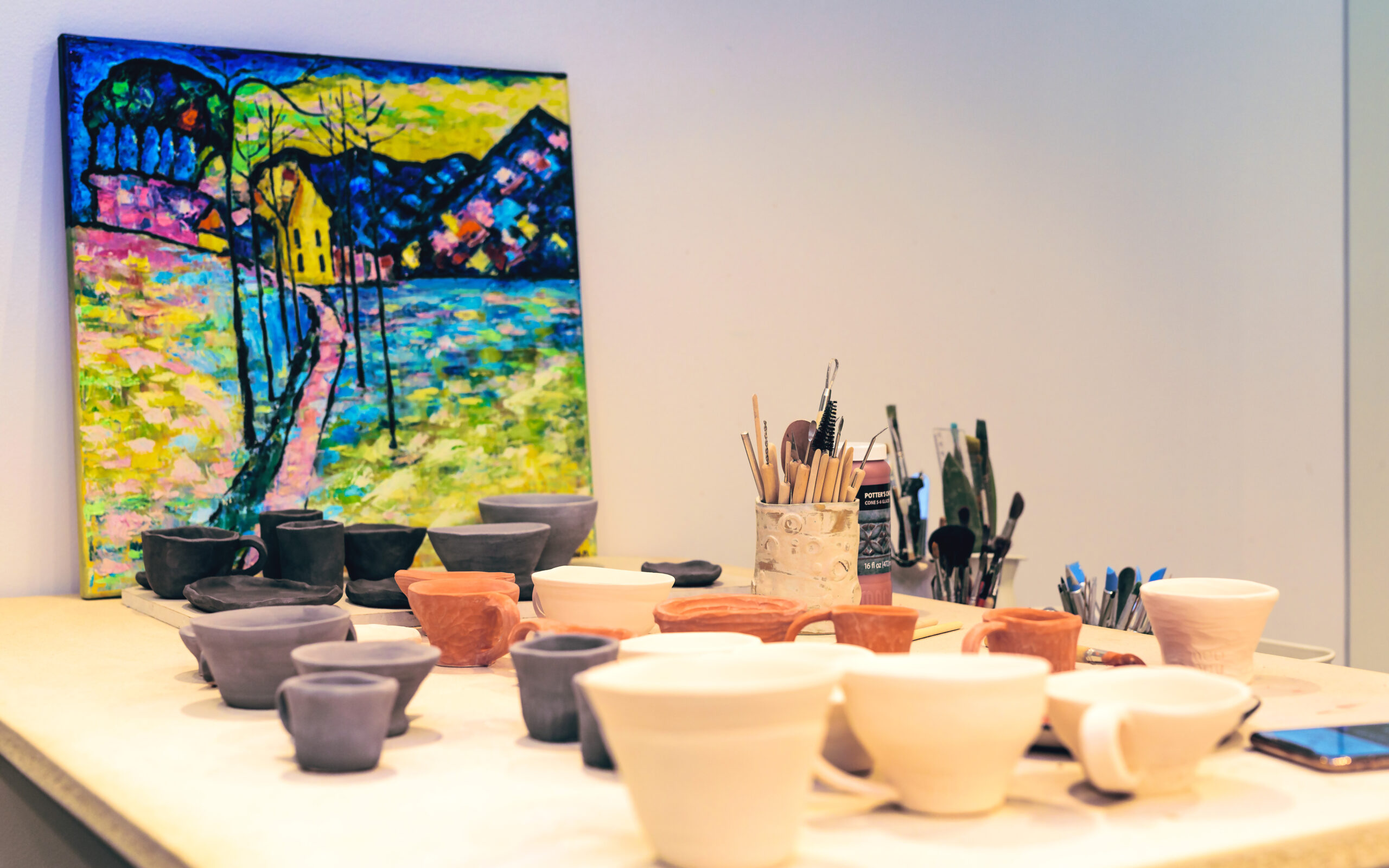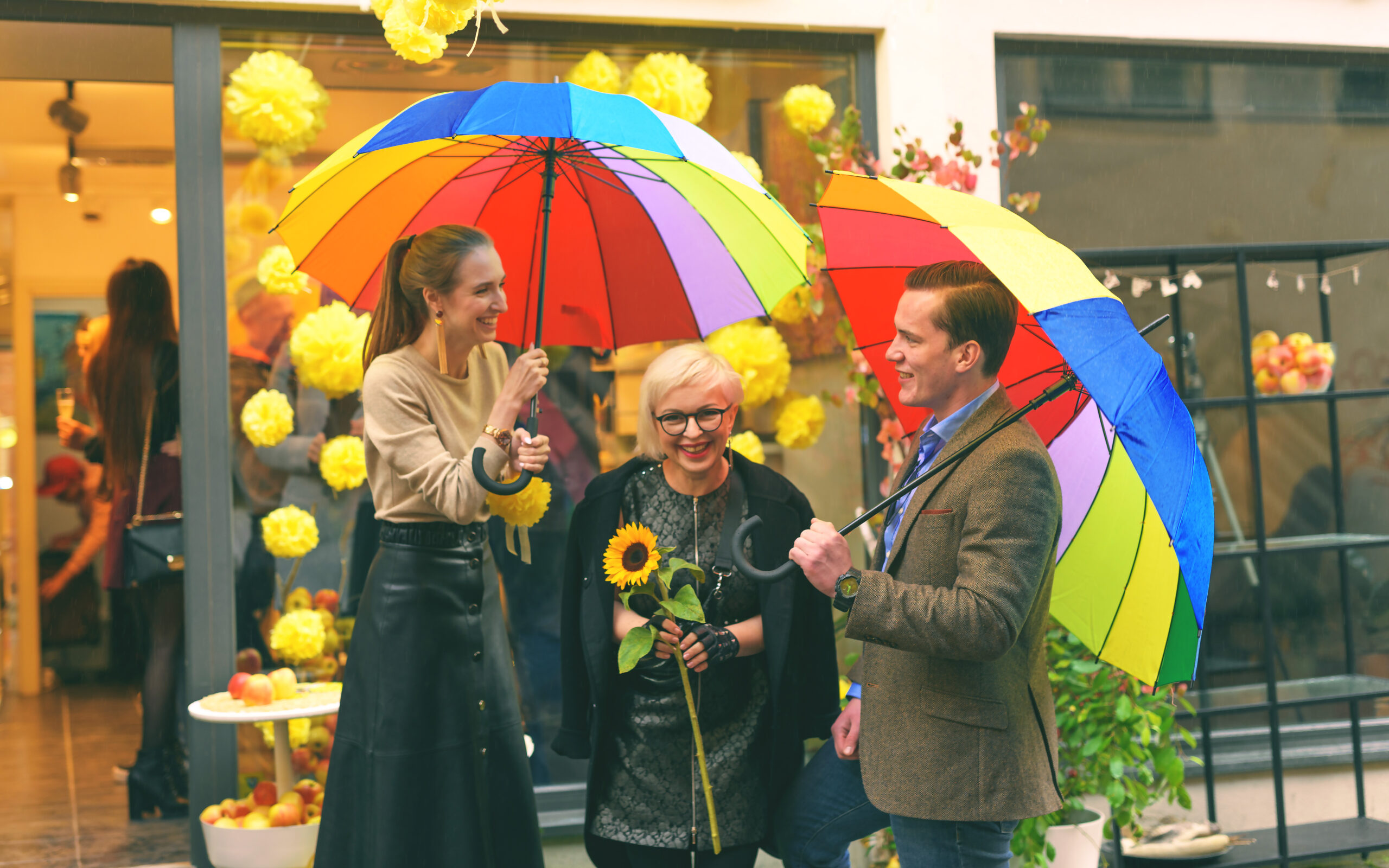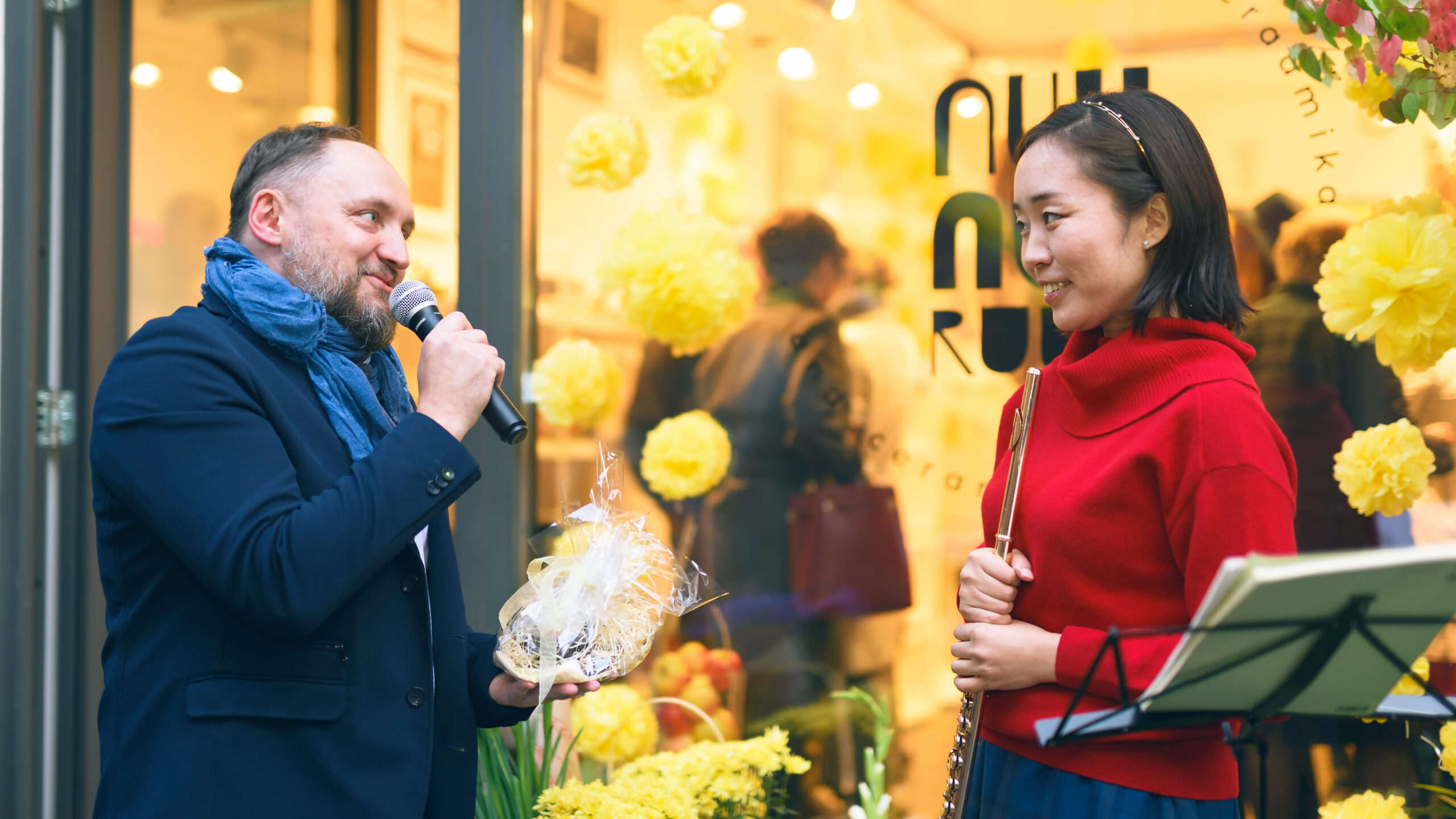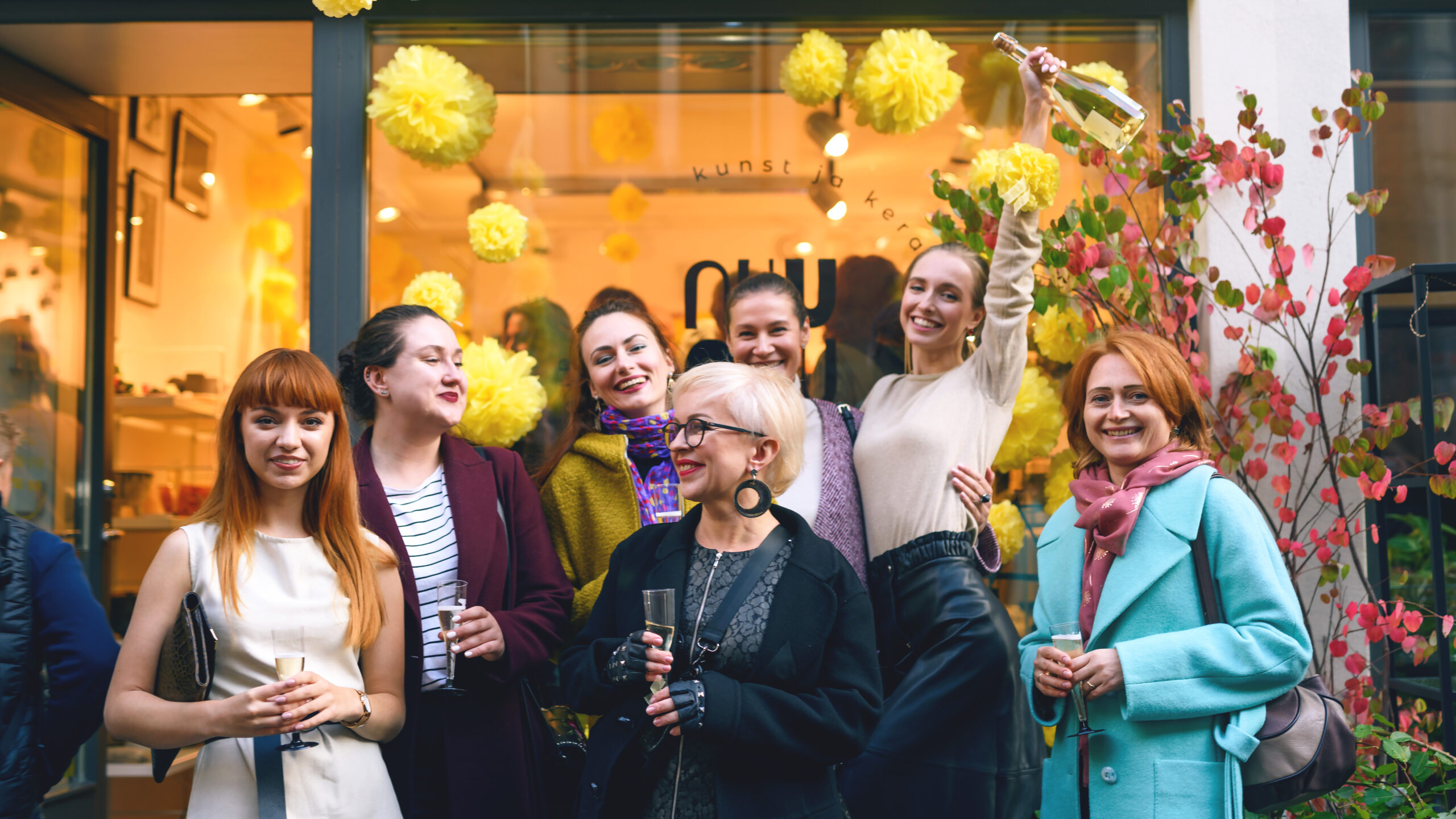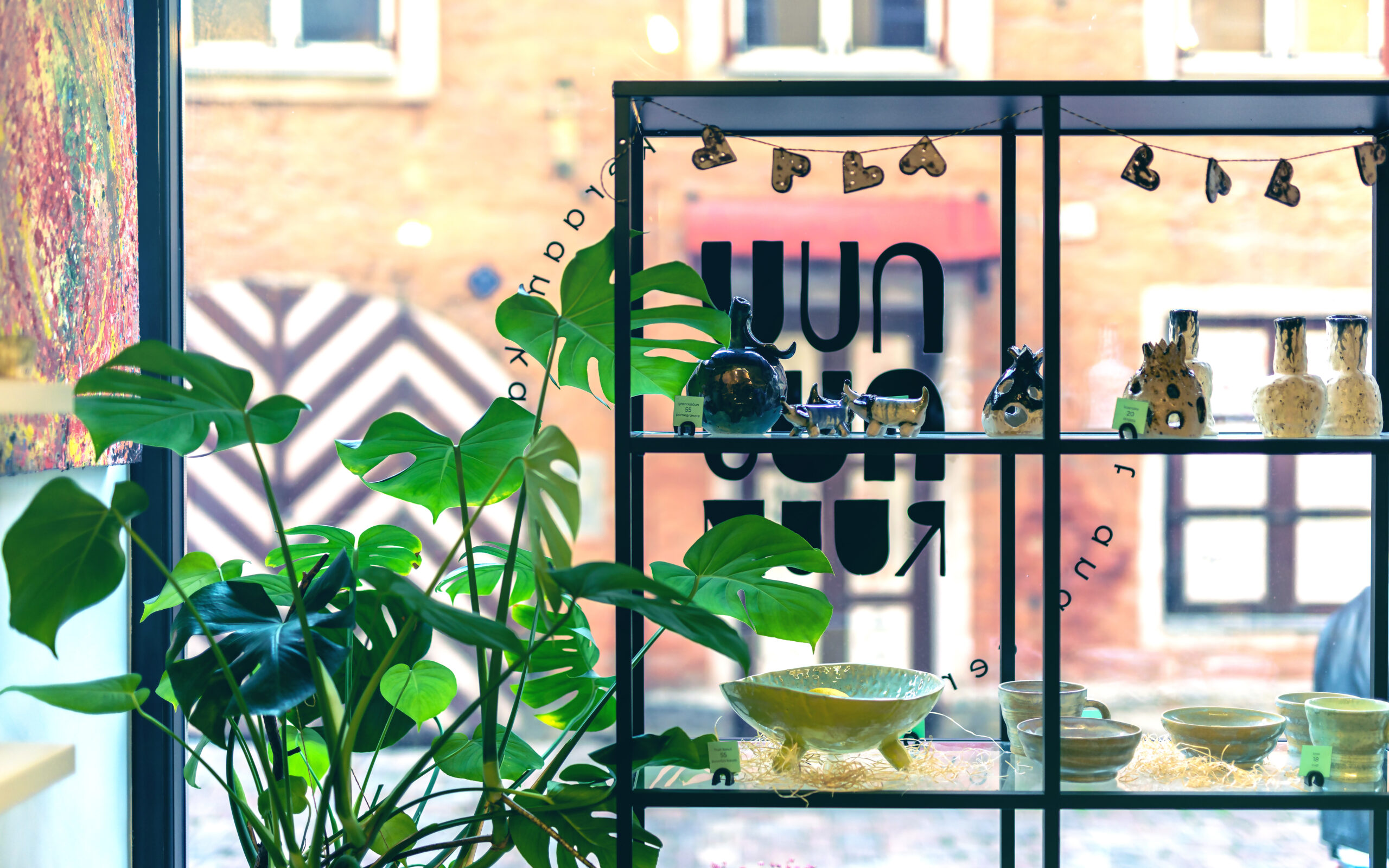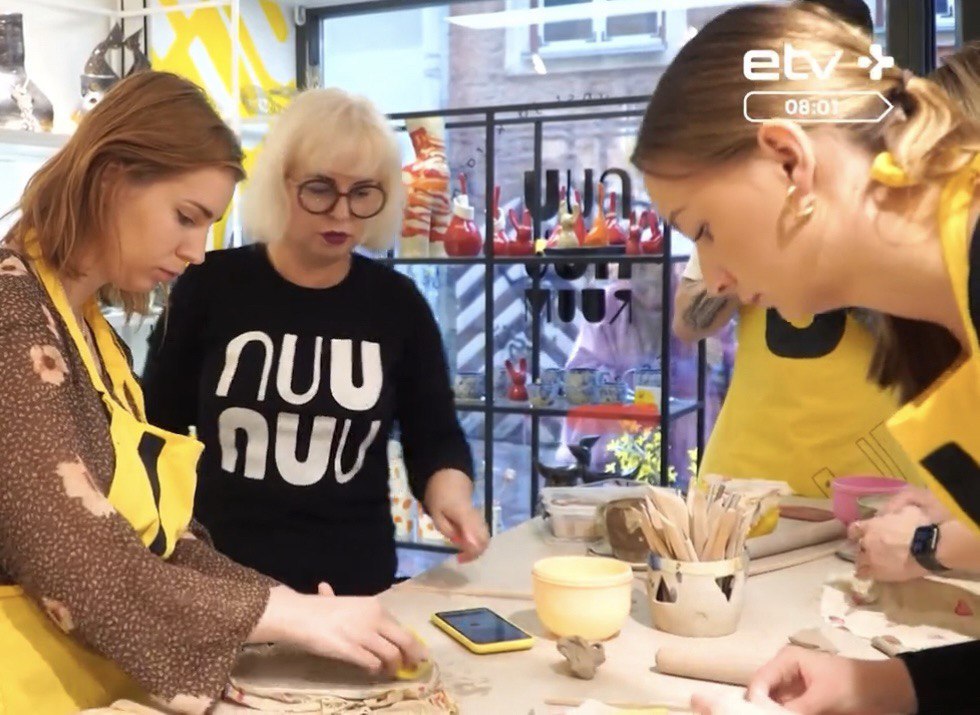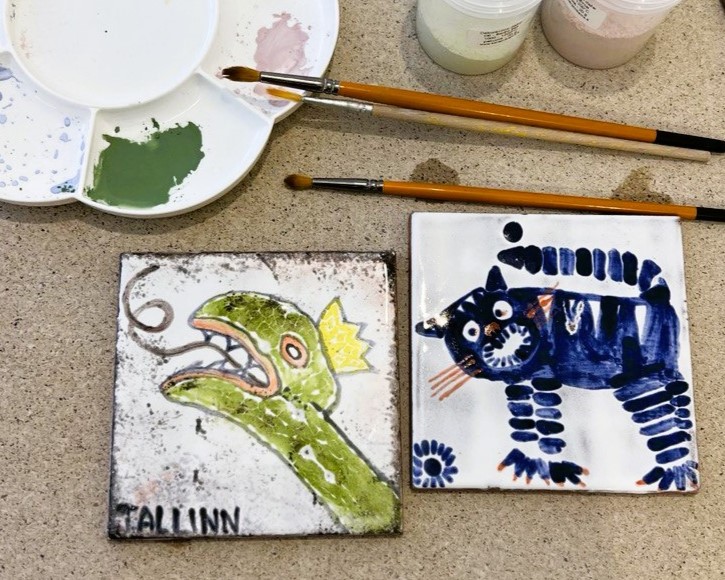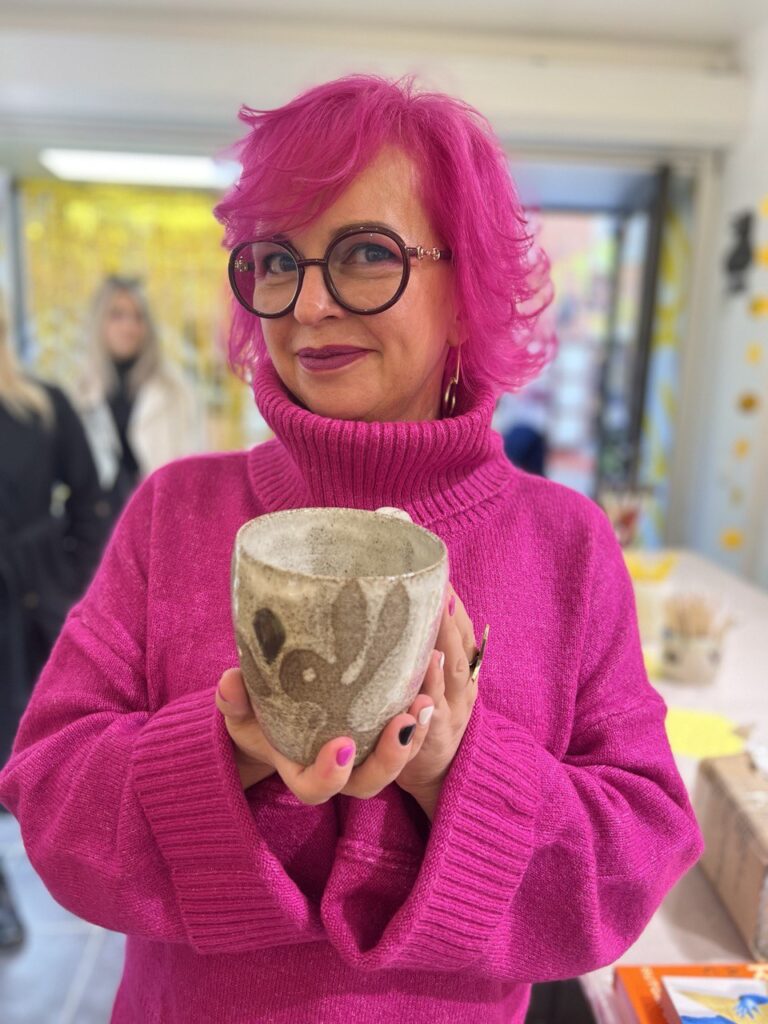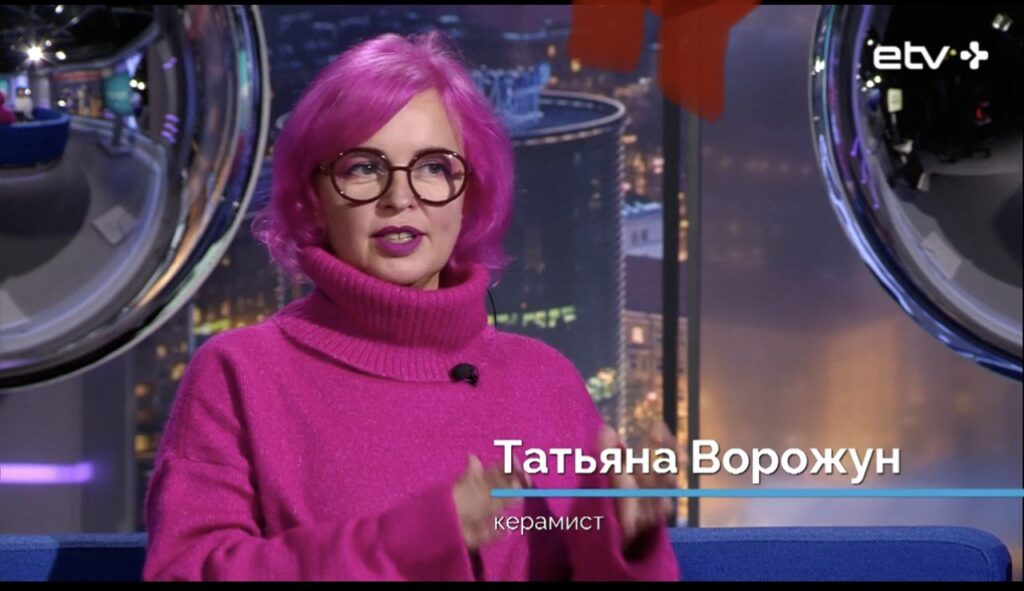The financial director of Red Graphic agency, Tatiana Vorozhun, was forced to leave Belarus, but in that situation, she decided to implement her hobby in her own nuunuu ceramics studio. Kyky asked Tanya, why bookkeeper decide to start such business, and how it turned out that for Belarus citizen easier open your mini-business even in Estonia than at home.
KYKY: I want to start with the main question: how does a financial director with 12 years of experience decide to open a ceramics studio?
T.V.: I have much more experience! I graduated from the university in the 96th, but I started working in the 94th – I don’t want to remember this so that they don’t start counting my age (laughing). After the university, I worked as a chief accountant in various companies, then – when the children appeared – I came to the interactive agency, Red Graphic, to the position of financial director.
At the same time, from childhood, I was a creative person. I went to art school, sewed clothes for myself, made haircuts for all my friends. But in the days of my youth, it was important for parents that their child got the right education – this is the trouble of our Soviet upbringing. As soon as you hinted that you want to become a hairdresser, the family immediately accepted your words with hostility, because the profession of cutting people was not as prestigious as the economist was, and besides, my grandparents were the chief accountants. It was even more difficult for parents from the dynasty of economists, people of science, and teachers to imagine their child will choose another direction: they did not understand that money could be made from this. Unlike a dynasty of artists or artists. Therefore, my departure to the economy is a common family decision.
Nevertheless, I also had a love of numbers, and I like being a CFO. When you make reports for managers, founders, you understand that they make decisions about the future strategy of the company based on your findings. This is very important, this is what I can and love to do.
It is very easy to open a company in Estonia
My first years at the agency were quite difficult. At first, work in a new industry always requires additional efforts: I was forced to spend not eight hours, even eleven. And work on the weekends to get everything done, because of this mode, sometimes happens when you simply burn out. Therefore, in parallel, I was looking for myself a radically different occupation, so as not to go completely to work. In Minsk, I went to the artist’s lessons on weekends – a hobby gives a lot of vitality, so it’s important to be able not to get hung up on one job. Probably, this rule does not work only for creative people who can already fully realise themselves. When you get to know a lot of not creative ones, you find out that one of them plays the guitar, writes poetry, plays sports. I don’t know people who only go to the office and home every day.
Creativity never disappeared anywhere from my life, like a childhood dream – to open my own studio. Only in childhood did I think that I would become a fashion designer. I remember one of the first trips to Europe, it was Amsterdam. When I saw all of these Amsterdam’s shops with large showcases, where people were working on something, I was very impressed with this picture. That probably stayed somewhere in the subconscious, because many years later I saw a similar studio in Tallinn. It was the moment when you look at the room and understand: this is what you have been dreaming of all your life. So I decided to open my studio.
KYKY: Two years ago, your family moved to Tallinn. Has Estonia become a catalyst for creativity?
T.V.: My husband had to leave the country for work. Making a final decision with him was not something difficult – difficulties began afterwards.
Suddenly, you realise that in the morning you can’t get corny at work, have a cup of coffee with your colleagues. I never thought it was so important to me.
I was born in Minsk, graduated from high school and a university there, I found a job. In Minsk, I have many friends and acquaintances, and in Tallinn at first, there was nobody. Now, of course, everything had changed (smiles).
This move made me wonder what is most important to me in life. It’s clear – family, children, work. But there is also something for the soul, your innermost desire, which you dare not express aloud. And only when you have free time – and in Tallinn, I had a lot of it – you start to tell yourself what you want. I went to artists’ workshops and then enrolled in ceramics courses. This hobby that always seemed to be something inaccessible and very complex. Ceramists need special equipment, furnaces. I thought it was something unimaginable that you can’t just take and do. There are a lot of ceramists in Tallinn – I am far not alone in this sphere. I tried to sculpt from pottery – I liked it. And I wanted to constantly engage in this, and not just go to classes 2-3 times a week. This is another reason why my studio appeared.
And financially and morally in this desire, [husband] Sergey supported me. Say what you like, opening a studio is a lot of money. And I can’t say that I’m all so independent and I don’t need help.
KYKY: Tell me to step by step how a person from Belarus can open its own business in Estonia? Has your citizenship somehow influenced this process?
T.V.: I have Belarusian citizenship, and I am not going to change it. And I can’t – only after eight years (laughs). It did not affect the opening of the company in any way – in Estonia, the laws are the same for all people in the world. And it is humanly that Belarusians are very well treated here. It seems that all Estonians have relatives in our country – they love us very much.
Opening a company in Tallinn is very simple. All issues are resolved without leaving the office. I registered the company remotely, opened a bank account via video chat. Then I rented an office, agreed with the tenant everything that I want to do in his premises – I only need to equip another sink.
There is no terrible regulation in Tallinn – I realised this when I was already installing a ceramic kiln.
To work with it, you just need to call a certified electrician so that he installs it for you and fulfil the requirements of the manufacturer. The permission of firefighters for her work is not necessary. But since I planned to sell coffee in the studio, I needed to get help for working with products – something like a Belarusian health book. I got it in a couple of days. That’s all.
I know that inspectors can come to me to find out if I use the correct icing. To it, there are requirements for chemical composition. And I know that I have no violations on this point. And if the inspectors find any other errors, they will first warm me, They will allow me to fix everything, and only then they will use certain measures.
KYKY: It sounds very easy and simple. And how much does it all cost?
T.V.: This is very simple but expensive. I have already invested more than 10,000 euros in the studio: I spent on rent, bought a stove, a potter’s wheel, clay, glaze, a tool for work, a coffee machine, furniture.
The tax report should be submitted only at the end of the year, therefore, although I am a bookkeeper, I have not even opened an account. I understand that all these expenses will not pay off quickly. But I regard the studio as a dream come true – I give myself three years to get started and become recognisable in Tallinn. Of course, creativity is not a story about money, but I hope that my studio will be able to recoup itself during this time.
When I just started to make a studio, it seemed to me that I knew everything. It’s like a student who graduates from the institute and thinks that he can immediately get a job as a chief accountant because he is already done well. If I had all the knowledge that is now – it seems, I would be afraid. But there is no turning back – in May we concluded a lease agreement for the premises, made cosmetic repairs, and in June we opened the studio’s doors in test mode. However, only in September, I was able to say that I brought the studio in the form in which I conceived it. For too long I had been waiting for what was needed for it: a stove from Germany and a coffee machine from Italy.
In the office, no one will say to you: Wow, what a beautiful financial report!
KYKY: The studio is officially open – tell me how it will work, for what can I go to you?
T.V.: Before the official opening, the studio worked as a ceramics store. I sold my work and the work of Estonian ceramists. And in the evenings I held workshop classes. After opening, the masterclasses will also remain. Plus, we will offer guests coffee in our beautiful ceramic cups. This is a very narrow concept, but I like it. I’m interested in making a place where people come to make a cup and then drink something from it. By the way, I have permission to sell alcohol (up to 20%) – I think this idea will be realised soon too.
The studio worked almost all summer at test mode, many guests came and wanted to make something with their own hands, although financially it is more expensive. To make one cup, you need to come to two masterclasses, which are more expensive than a ready-made cup. First, you need to mould the cup the time it takes to sculpt depends on the hands, on average, it takes the first hour of the master class and leaves it to dry for a couple of days. Then the cup goes to the first firing after it is taken out of the oven and covered with glaze. Then the cup goes into the second firing – the process is not fast.
In the office, no one will say to you: Wow, what a beautiful financial report! And here people from different countries of the world come to me and make compliments about comfort and atmosphere – this is insanely pleasant. My main buyers are tourists, the first was from Brazil. And then guests from Australia, Japan, China, Germany came in.
While I do everything myself in the studio, I don’t have a barista and other assistants, and I don’t need them – I work in a quiet street where there are no crowds of tourists for forty people with guides, signs and umbrellas. We reach those tourists who are interested to see not only the most famous places in the city but also find something secluded. There are not many of them, so I can cope alone. Physically, the hardest thing for me is to knead clay, and the rest is given to me relatively easily.
KYKY: Is everything covered with ceramics at home? Family sculpt too?
T.V.: Ceramic dishes have not yet been made, but we are going to this (laughs). Such dishes are great for terraces, we also have a terrace, so I would like to use only ceramics there. In general, Estonians are very fond of living outside the city, in solitude – it seems to me, therefore, they have sympathy for ceramics. A husband with children does not sculpt. Mostly they come to the studio to drink coffee from the new coffee machine – it is very tasty.
The studio has become a place of attraction for all my new and old friends. All of them insanely supported and helped – this was a pleasant surprise. I met many of them at Estonian courses because they are newcomers like me and have to learn the language. If you move to Tallinn without work and only with knowledge of the Russian language, it will be extremely difficult to find a job here. Few companies will agree to hire you. Estonians even take the position of secretary with knowledge of Russian, Estonian and English. And this is another reason to open your own business.
Well, as for the parents, my mother is proud of me, and my father gladly helps with the repair work of the studio during the holidays and he is also thinking to do ceramics in Minsk.
KYKY: It seems to me that if your family stayed in Minsk, you would not have decided to open this studio. Am I mistaken?
T.V.: The studio is a dream, in theory, it could be realised in Minsk. But when you are absorbed in work from morning to evening, you have no options to stop and at least think about where to start. In the meantime, you just dream and do nothing – nothing happens. Only at the stage of searching for a room does a picture line up in your head that lets you know what you can count on in terms of your own physical and financial forces. So if Sergey and I stayed in Minsk, now most likely I would not have a studio. Therefore, two years later, I understand that Sergey’s idea to leave was great.
KYKY: Why do you continue to work in the agency? Do not want to forget about the numbers and financial reports, or just for the sake of finances you work there distantly?
T.V.: Red Graphic is my project too, I am one of the founders, and I can’t take it and give it up. And yes, work allows me to cover studio expenses.
Now I do not work at the agency full time – I had to transfer operational issues because of the move, many moments are difficult to control from a distance.
Now my working day – from 9 a.m. to 11 p.m. – is much more intense than it was in Minsk. The first half of the day I devote finances to Red Graphic, the second half of the day – ceramics.
Although the studio is officially open from 12 to 17, I often linger there longer, because only in the evening many can come to master classes. I got a comfortable balance: on the one hand, there is work that I know and can do, and on the other, there is a hobby studio that inspires. Why give up something?
KYKY: What will happen in three years if the studio does not pay off? Or if, vice versa, things go well, will you open a franchise in Minsk?
T.V.: I don’t know where I will live in three years (laughs)! If I return to Minsk, maybe I’ll open something similar. If I will stay in Tallinn – I will hardly scale the studio. My little concept is the embodiment of everything that I like. I do not want to change her.
We initially decided with Sergey that if the studio does not pay off, we will not spare the money invested in it. I earned the right to try to fulfil my dream – the children grew up, I have the time and the financial ability, why not?
For the first time, I missed the first morning cup of coffee with my colleagues – life consists of not only global things but also little things that set the mood. I remembered how I came to our beautiful office in Minsk and we all sat down at a large table and told each other our news. Now I have another, no less valuable ecosystem for me. My studio is located in the old city – in Minsk, there is no such beautiful historical place. Every morning I go through it, greet the owners of other shops in the neighbourhood, whom we have long met and now also drink coffee. Or Prosecco in the evenings. I have new moments that I appreciate – how can you regret about it? And I think that this project helped me fit into the new Tallinn life.
Great thanks to Irina Mihno for such a wonderful KYKY’s article

 EN
EN  ET
ET RU
RU